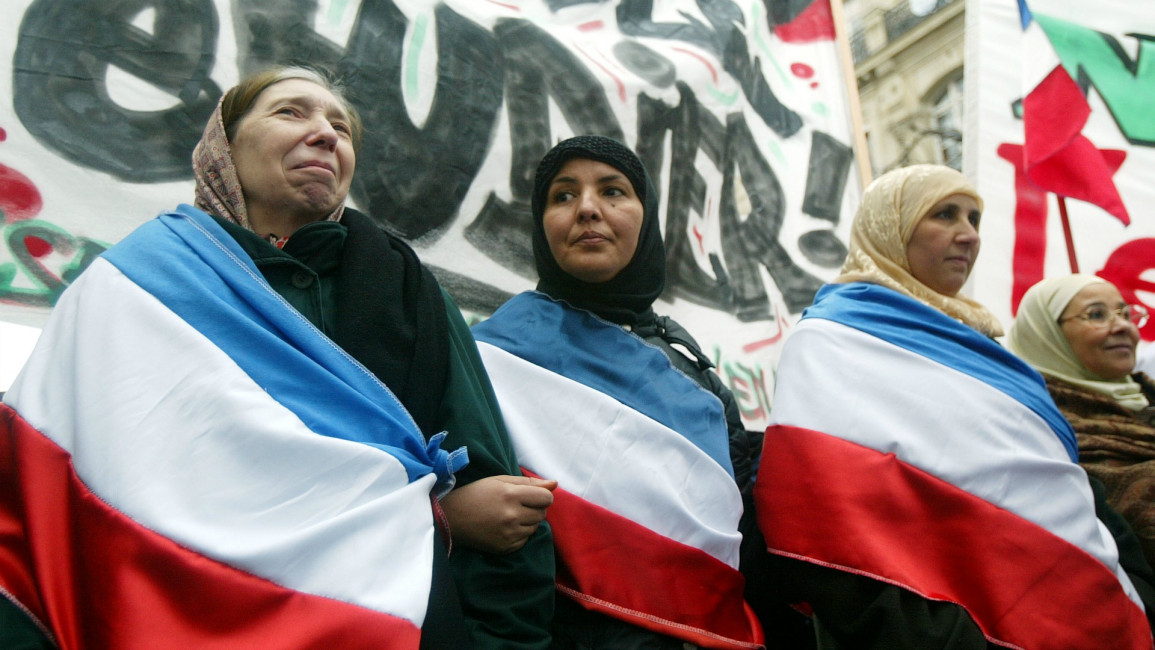
French and Muslim? Squaring religion with national identity
Set up under then-Minister of the Interior Nicolas Sarkozy in 2003, the French Council of the Muslim Faith (or CFCM, Conseil français du culte musulman) was an attempt to build an institution that would serve as an official interlocutor with the French state.
It follows then, that its elected leaders might be expected to represent the views of France's Muslim population. But the CFCM has come in for much criticism from many in the Muslim community for failing to do just that.
Academic and the president of Religions for Peace in France, Ghaleb Bencheikh, criticised it for having "failed to take into account the aspirations of a whole generation of young people". This view was echoed by Ahmed Jaballah, a former president of the Union of Islamic Organisations in France (UOIF), who pointed out that "young Muslims do not feel represented by the body".
In an interview with the French newspaper Le Figaro published on April 29, CFCM leader Anouar Kbibech said that French Muslims had a responsibility to demonstrate, "through their words and acts, their attachment to the Republic and its values".
These words echo the organisation's Citizen Manifesto for Muslims in France, published following the deadly attacks on the capital in November of last year, which reiterates the community's commitment to the values of secularism and the Republic.
But what might these values of secularism and the Republic mean for France's young Muslims?
The interview was published in reaction to a study commissioned by the paper and conducted by the French Institute for Public Opinion (Ifop). Using a diverse sample of 1,097 French and German participants, it examines how attitudes to Islam and Muslims in France and Germany have changed between December 2010 and April 2016.
The results of the study appear to reveal some worrying statistics: 63 percent (an increase of eight percent since 2010) agreed with the statement "The influence and visibility of Islam on your country today is too great."
And almost half (an increase of five percent) said they saw the presence of a Muslim community as more of a threat than a source of cultural enrichment.
Asked why Muslims and people of Muslim backgrounds are "badly integrated", 67 percent of those surveyed said that Muslims were "insufficiently willing to integrate", with only 19 percent attributing this to economic difficulties and a lack of employment opportunities.
 |
The impossibility of simply extricating the issue of religion from that of identity is neatly demonstrated by Rossignol's unenlightened comments |  |
But against the background of an apparently increasingly negative image of Islam in France, expecting France's Muslims to subscribe to the values of secularism and French republicanism seems like a rather tall order.
In response to proposals by mainstream fashion outlets such as Dolce & Gabbana and Uniqlo to offer clothing catering to "Muslim fashion", France's Minister for Women's Rights Laurence Rossignol accused the brands of being socially irresponsible, and compared, during a recent TV interview, choosing to wear the veil with black people being in favour of slavery.
With such unashamedly and overt anti-Muslim sentiment expressed by members of the French political establishment, it is hardly surprising that the values of the French Republic are decidedly unappealing for many French Muslims.
And yet, Kbibech goes on to state that French Muslims should bear the spirit of renewal and openness in order to contribute to the "life of the [French] Nation". Their priority, he claims, should "be to preserve the 'vivre ensemble' - that well-established French ideal of 'living together' - and 'national cohesion'". But what, one might ask, might be their motivation to do this, when France's secular values also provide the vehicle for such vicious attacks on Muslim identity?
Kbibech - perhaps naively - foresees a society based on citizenship, which goes over and above religion. But the impossibility of simply extricating the issue of religion from that of identity is neatly demonstrated by Rossignol's unenlightened comments, and failure to do so herself.
As Jaballah points out, "when France's Muslims do attempt to use their freedom to demonstrate their efforts to integrate (in initiatives such as "Muslim fashion" or halal meat in restaurants serving French cuisine) it is rejected, misunderstood and interpreted as a threat.
 |
If Kbibech's vision requires blindly subscribing to the generic and empty values of the French 'vivre ensemble' and Republican secularism, it is unsurprising it holds such little appeal |  |
And if Kbibech's vision requires blindly subscribing to the generic and empty values of the French "vivre ensemble" and Republican secularism, it is unsurprising it holds such little appeal. Worse still, with figures such as Rossignol supposedly defending women's rights in the Republic, it is little wonder many of France's Muslims are left feeling disenfranchised and under-represented.
It is also worth calling into question the value of a study asking questions such as "Are you in favour of the building of mosques in your country, if religious communities ask for it?", "Are you in favour of Muslim women being able to wear the veil in public should they wish to do so?" or "Would you describe the presence of the Muslim community more as a threat, a source of cultural enrichment or neither of the above?"
The wording of such questions sets up a clear opposition between "us" and "them", pitting Muslims and "the influence of Islam" against France and the values of her Republic. What percentage of those questioned were both French and Muslim, you might wonder? Unsurprisingly and rather tellingly, history doesn't relate.
Join the conversation by tweeting to us: @the_newarab
Opinions expressed in this article remain those of the author, and do not necessarily represent those of The New Arab, its editorial board or staff.




